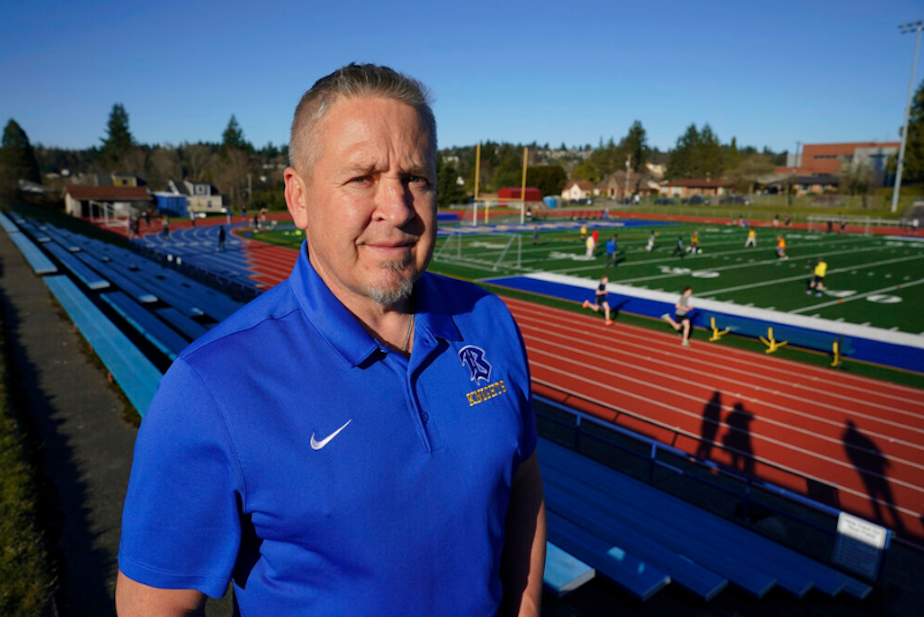Hear it again: Kennedy v. Bremerton School District and SCOTUS

While most people have been tuned into understanding national implications the Supreme Court's overturning of Roe v. Wade, the ruling on another case with local roots, Kennedy v. Bremerton School District, was issued today.
The court ruled in favor of former Bremerton football coach Joe Kennedy.
Kennedy sued the district after school officials objected to his practice of praying at the 50 yard line after football games. The coach was joined in his post-game prayers by students and others. School officials wanted Kennedy to make a statement that his prayers didn't reflect the position of the district, but efforts to reach a compromise were unsuccessful. After Kennedy's contract ended, he did not apply for it to be renewed in 2016 and instead filed a lawsuit claiming the school district had discriminated against him.
In April, Soundside host Libby Denkmann spoke to UW School of Law Professor Clark Lombardi about the case.
It raised issues related to a key clause in the First Amendment, which says the state can't make any law "respecting an establishment of religion."
Lombardi said Kennedy's case hinged on a question of whether the coach was acting as an individual, or a state employee.
Sponsored
"If a teacher or a [district attorney] or any government official is being fired for something that they said at work, then the court has to analyze whether their speech was taken in their private capacity as a citizen -who was speaking on a matter of public concern - as opposed to being in public, speaking in their capacity as a public official," Lombardi said.
As Professor Lombardi put it back in April, this decision will have a long-term impact on how schools consider religious issues moving forward.
"Whatever comes out of this case, schools and public institutions will have a roadmap for how they should write their regulations to ensure that they can prevent exactly this type of behavior, and not be anti-religious behavior," Lombardi said.
You can learn more about the case, and listen to the full interview with Professor Lombardi here.
EDITOR'S NOTE: An earlier version of this story incorrectly said that Kennedy had been fired from his position as an assistant football coach at Bremerton High School. Kennedy was contracted by the district. When his contract ended, he did not apply for it to be renewed.






